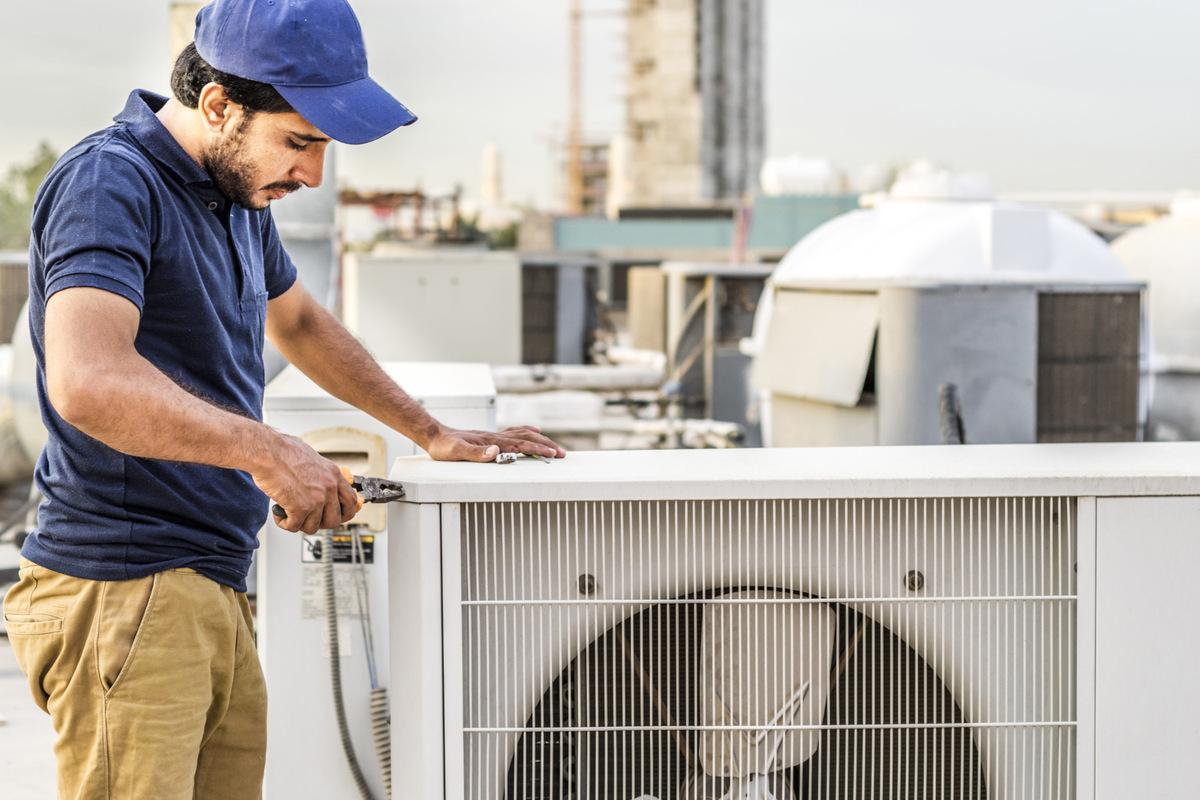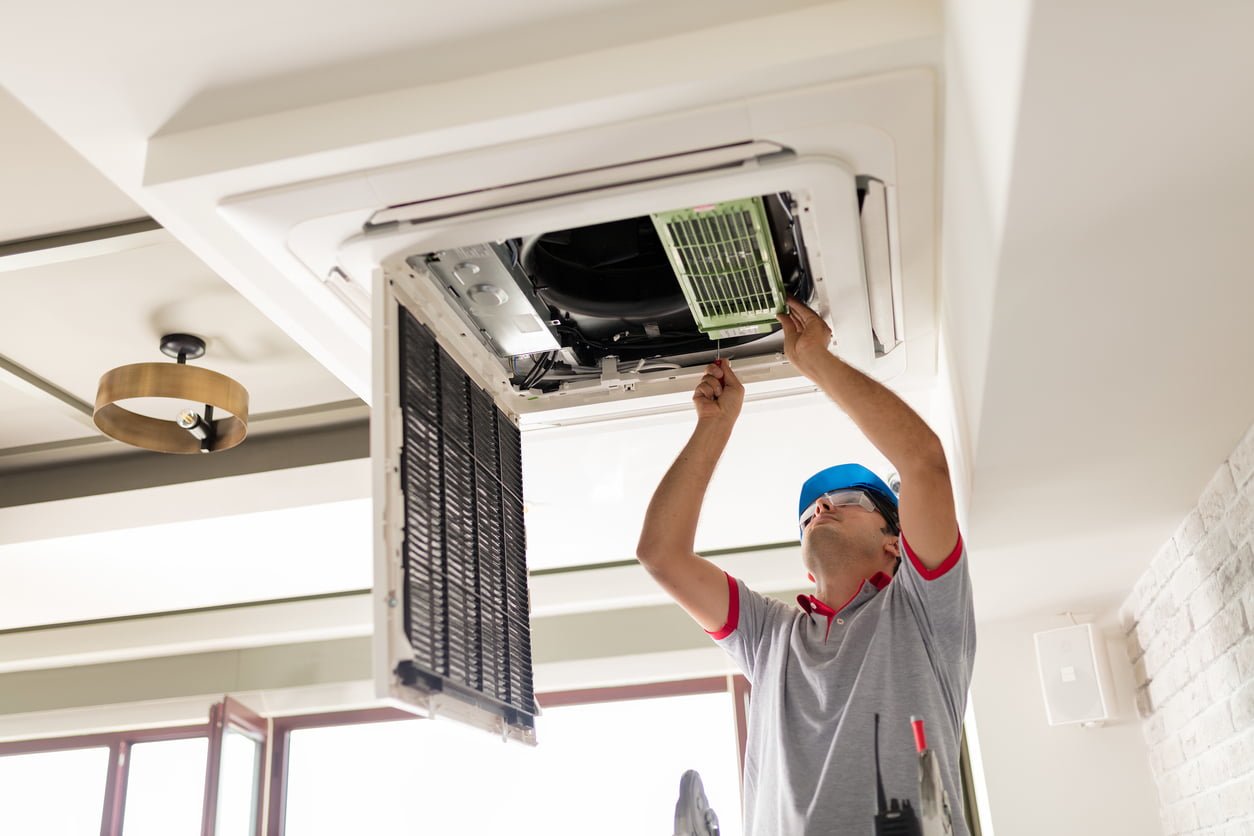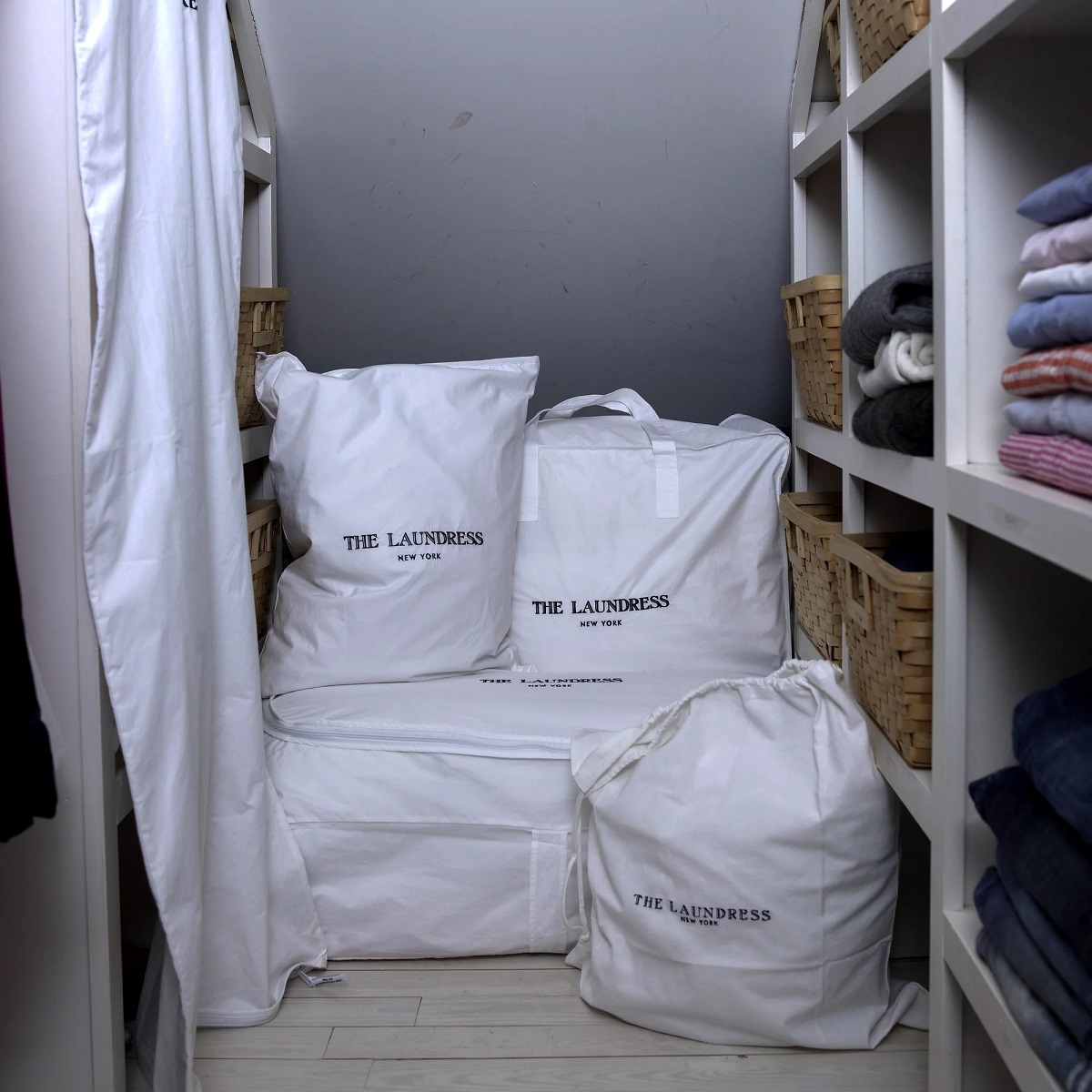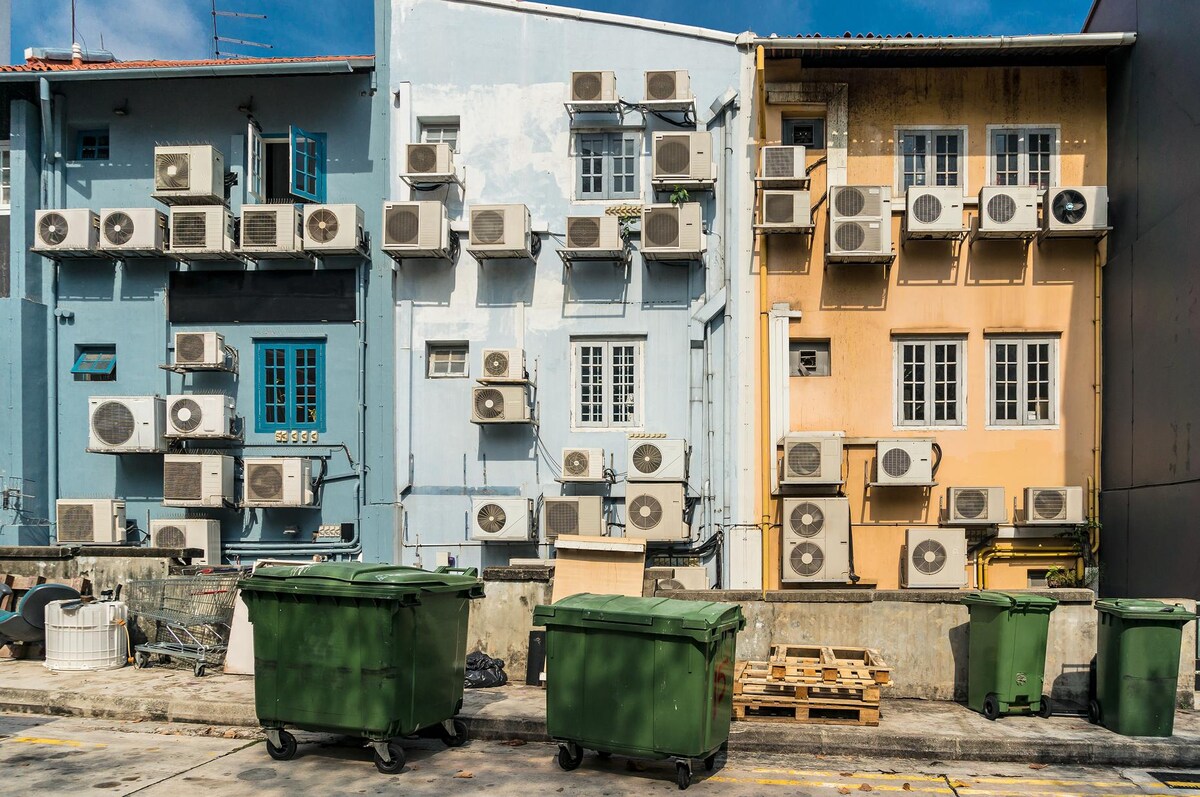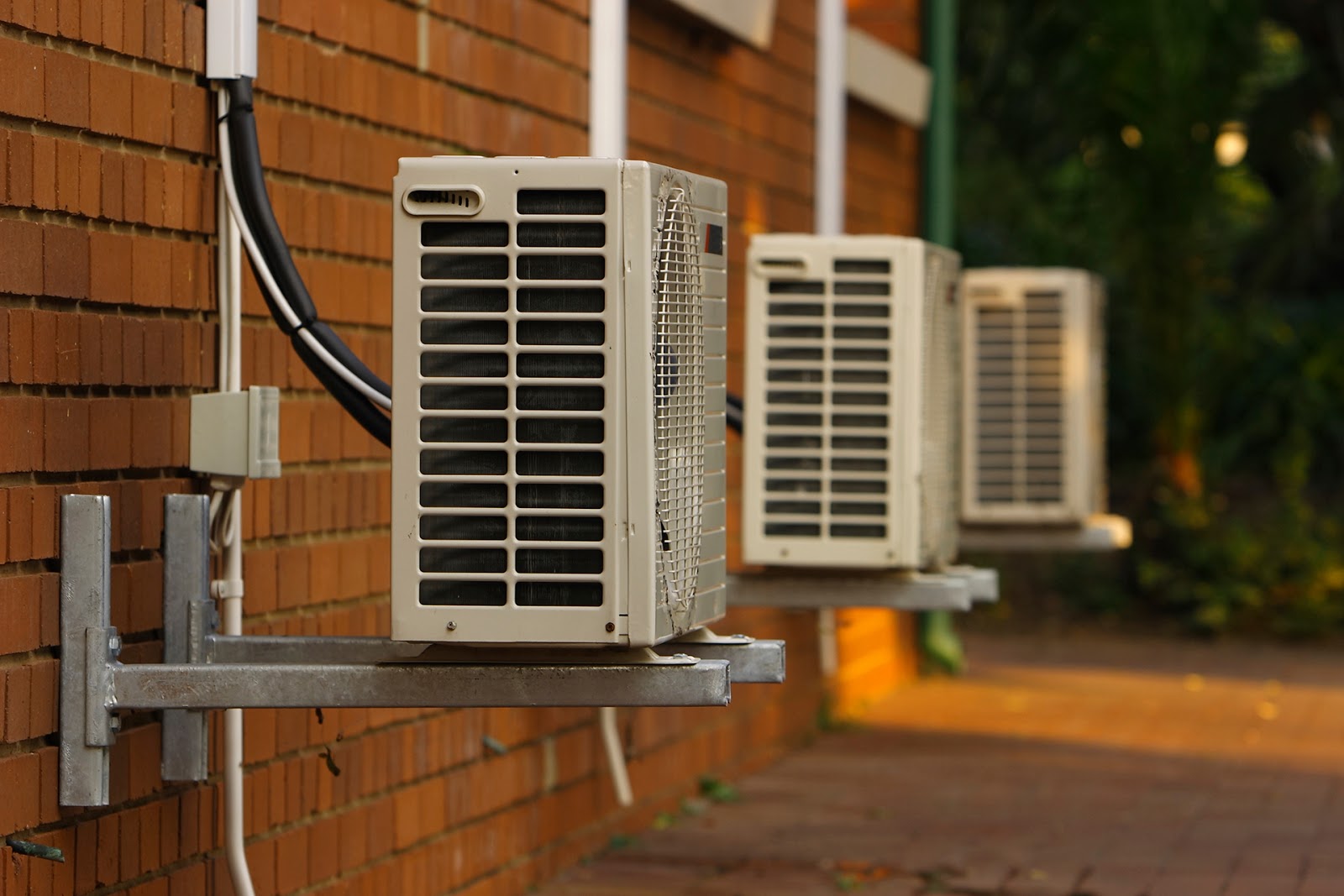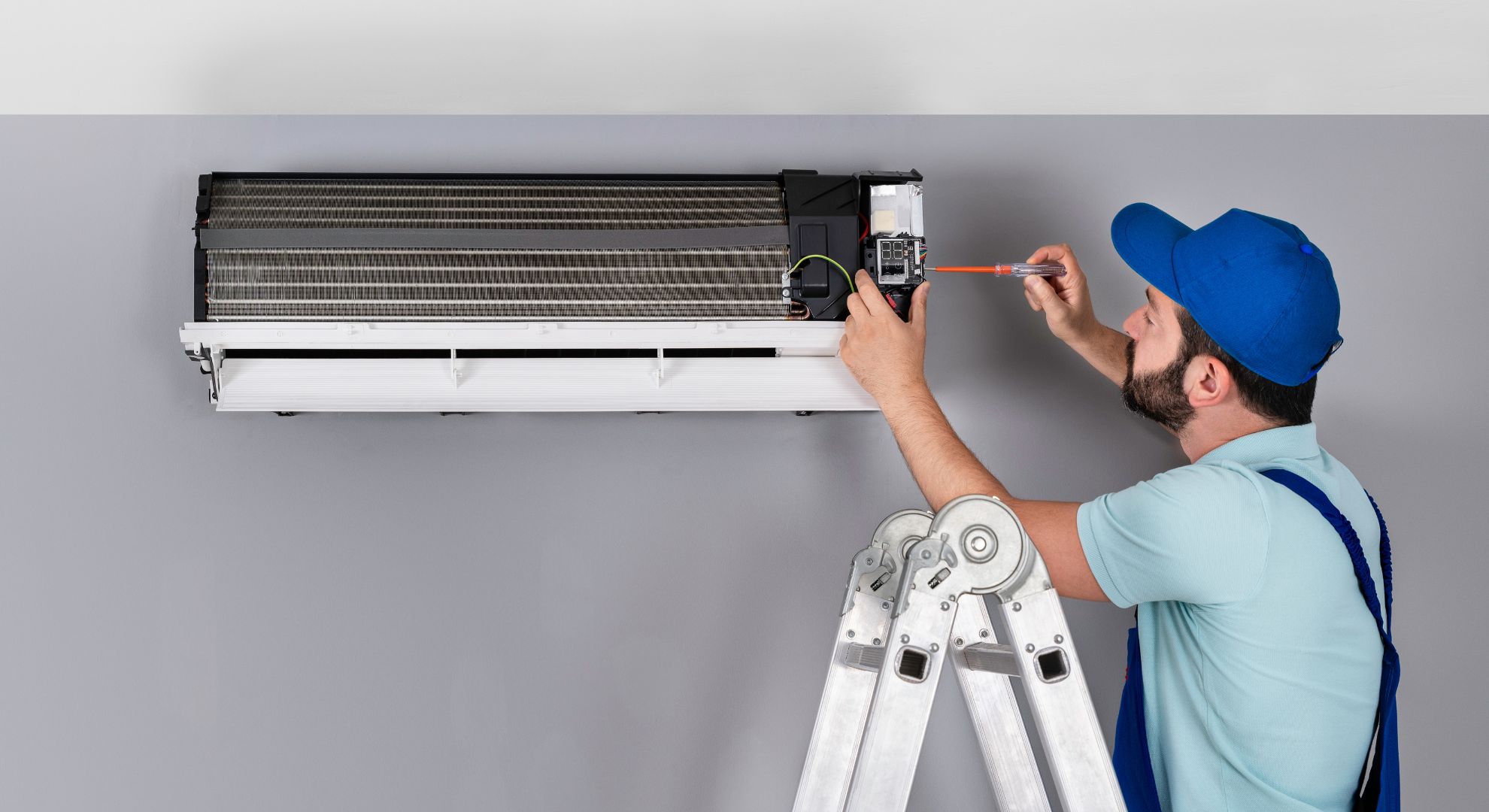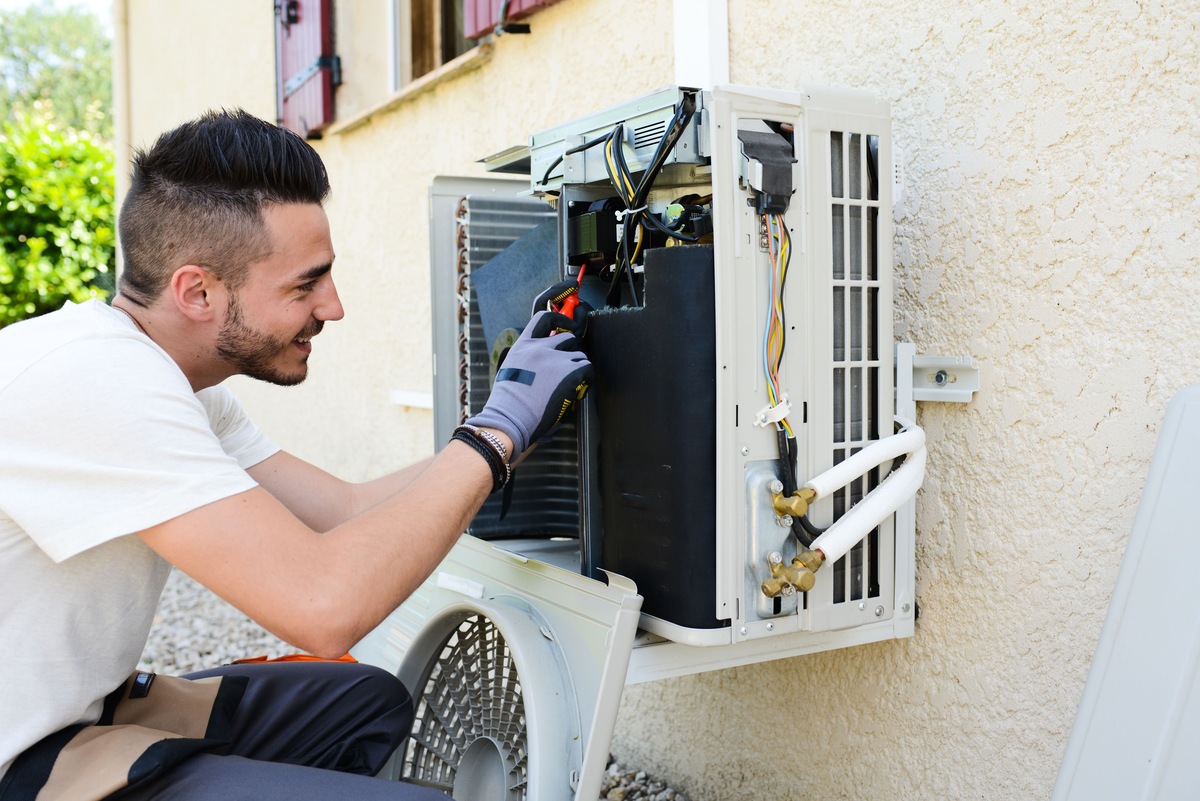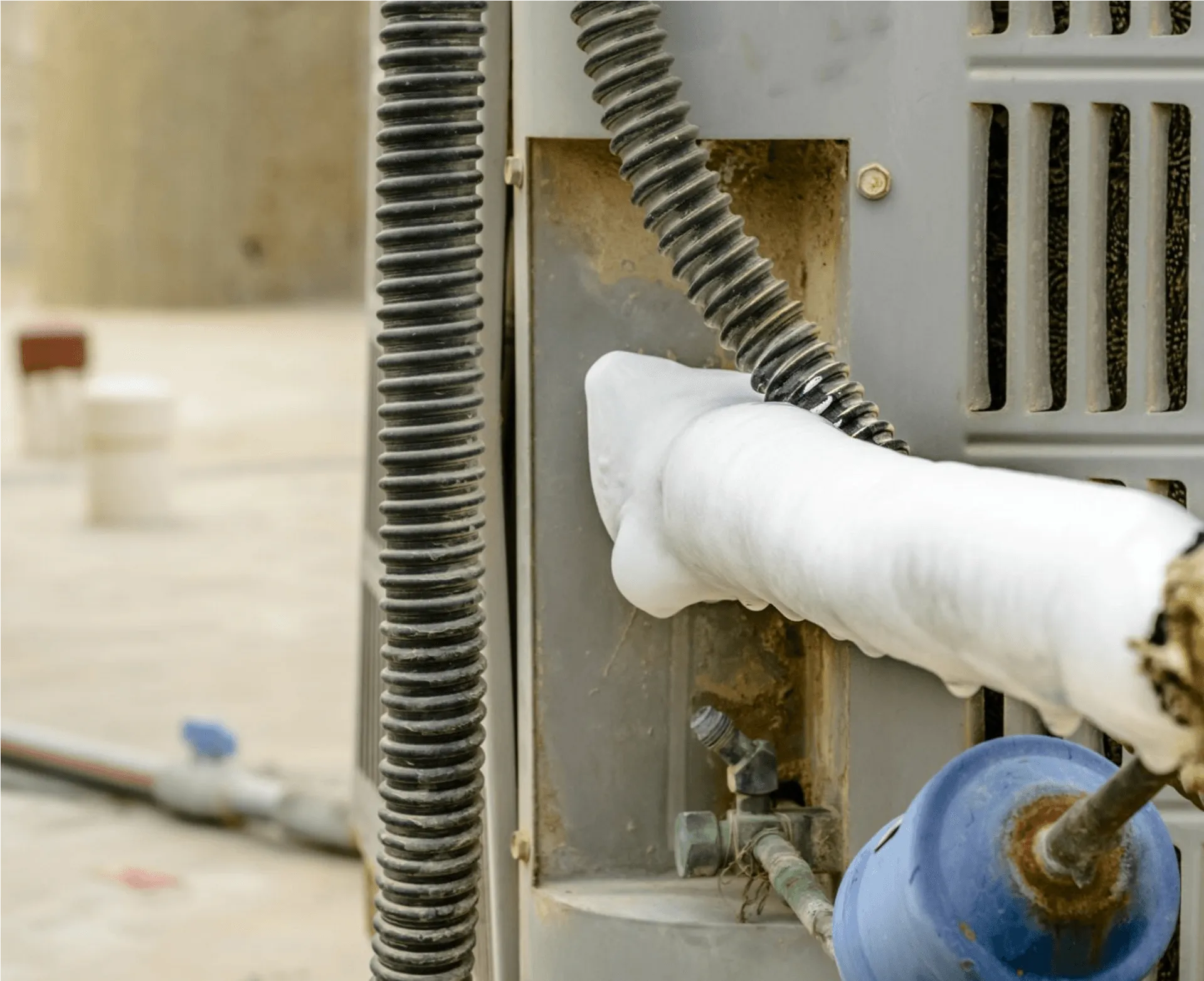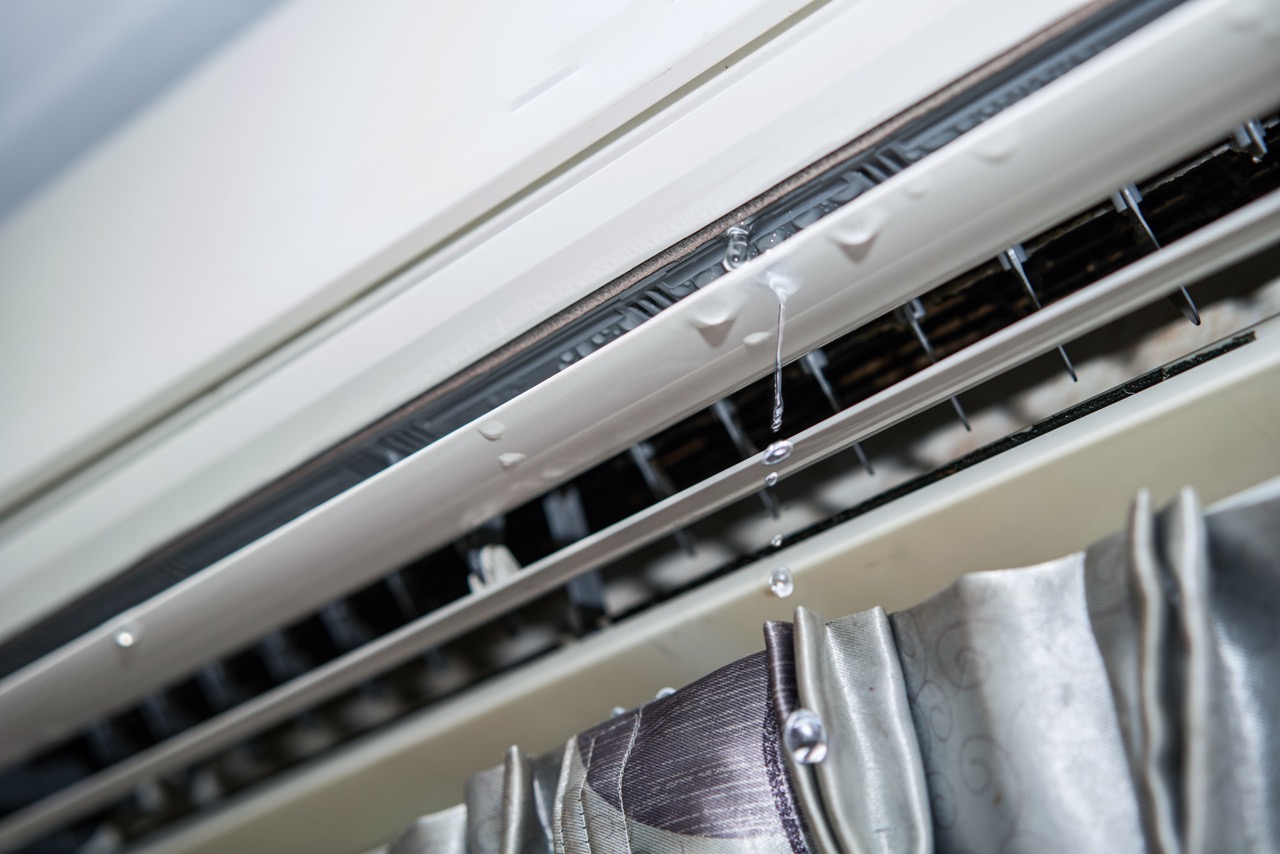Home>Home Maintenance>Why Have People Been Stealing Air Conditioning Units
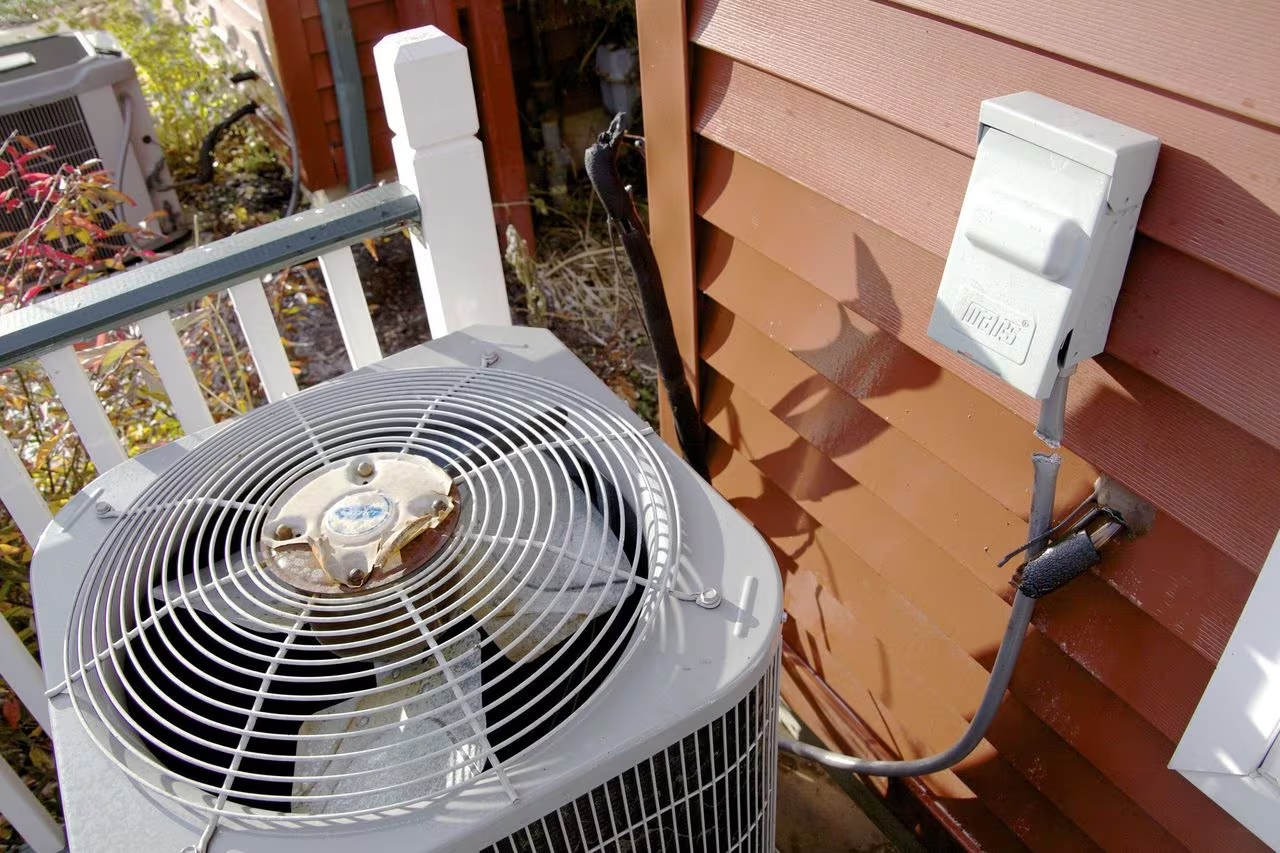

Home Maintenance
Why Have People Been Stealing Air Conditioning Units
Modified: March 6, 2024
Learn the reasons behind the increasing trend of stealing air conditioning units and how it impacts home maintenance. Explore preventive measures!
(Many of the links in this article redirect to a specific reviewed product. Your purchase of these products through affiliate links helps to generate commission for Storables.com, at no extra cost. Learn more)
Introduction
Air conditioning units have become an essential commodity in our modern lives, providing us with comfort and relief from the scorching heat of summer. However, a concerning trend has emerged in recent years: the theft of air conditioning units. It seems that these valuable appliances have now captured the attention of thieves looking to make a quick profit.
Stealing air conditioning units is not a new phenomenon. In fact, the theft of these devices has been happening for decades. However, in recent years, the frequency of these thefts has increased significantly, leaving homeowners and businesses puzzled and frustrated.
What could be the reason behind this surge in air conditioning unit thefts? Is it driven by desperation, greed, or something else altogether? In this article, we delve into the historical context, motives, methods, and impact of air conditioning unit theft, as well as the efforts being made to combat this growing problem.
Key Takeaways:
- Thieves are stealing air conditioning units for valuable metals and to meet the demand for affordable cooling solutions, impacting communities and businesses financially and environmentally.
- Efforts to combat air conditioning unit theft include public awareness, security measures, legislation, and collaboration among stakeholders, aiming to deter thieves and protect valuable assets.
Read more: Why Do Schools Not Have Air Conditioning
Historical Context of Air Conditioning Units
The invention of air conditioning brought about a revolutionary change in the way we experience and control our indoor environment. The concept of cooling the air dates back to ancient civilizations, who used various methods such as ice, fans, and evaporation to combat the heat. However, it was in the early 19th century that the first mechanical air conditioner was developed.
In 1902, Willis Carrier invented the modern air conditioning unit, which utilized a compressor, condenser, and evaporator to cool the air. Initially, air conditioning was primarily used in industrial settings, such as textile mills and factories, to improve worker productivity and create a more comfortable working environment.
As technology advanced and for the growing demand for comfort, air conditioning units started to find their way into residential and commercial buildings. From cooling homes and offices to enhancing the shopping experience in malls, air conditioning became an integral part of modern life.
This popularity and widespread use of air conditioning units made them an attractive target for thieves. The value of these units, combined with their easy accessibility, has created a lucrative opportunity for those seeking quick cash or valuable assets.
Although air conditioning unit theft has been occurring for many years, it gained more prominence in recent times due to several factors. The rising prices of metals, such as copper and aluminum, have made these units even more tempting for thieves.
Additionally, the increasing demand for air conditioning units, particularly in regions with extremely hot climates, has created a market for stolen units. These stolen units often end up being sold to unsuspecting buyers at a fraction of the actual cost.
Understanding the historical context of air conditioning units provides us with insight into the reasons behind the significant rise in thefts. It helps us acknowledge the valuable nature of these appliances and the need to protect them from the hands of opportunistic individuals.
Motives Behind Stealing Air Conditioning Units
When it comes to understanding the motives behind stealing air conditioning units, it is important to consider the various factors that drive individuals to commit such crimes. While there may be specific circumstances that vary from case to case, there are a few common motives that can shed light on this issue.
One of the primary motivations behind stealing air conditioning units is the desire for quick financial gain. The valuable components within these units, such as copper coils and aluminum fins, can be sold to scrap yards or black market buyers for a substantial profit. With the increasing prices of these metals, thieves see air conditioning units as a lucrative source of easy money.
Another motivation for stealing air conditioning units is the demand for cheap cooling solutions. Some individuals who cannot afford to purchase brand new units may turn to theft as a means of obtaining a functional air conditioner at a fraction of the cost. These stolen units are often sold on online marketplaces or through informal channels.
In some cases, the motive behind stealing air conditioning units may be driven by desperation or necessity. In regions with extreme climates, such as areas with high temperatures or high humidity, having access to a functioning air conditioner can be a matter of survival. Individuals who cannot afford to purchase or repair their own units may resort to stealing as a last resort.
Additionally, there may be individuals or organized groups that target specific businesses or properties in a planned manner. These thieves may have inside knowledge of vulnerable locations, such as vacant properties or businesses that are temporarily closed. They see these targets as easy opportunities to steal air conditioning units without immediate detection.
While financial gain and practical need are the primary motives behind stealing air conditioning units, it is important to note that there are also individuals who engage in this criminal activity simply for the thrill or the challenge. These individuals may see air conditioning unit theft as a way to test their skills or satisfy their desire for adrenaline-inducing activities.
Understanding these motives can help us develop better strategies to deter air conditioning unit theft. By addressing the underlying issues such as poverty, the availability of affordable cooling options, and implementing robust security measures, we can mitigate the incentives for individuals to engage in this illegal activity.
Rising Demand for Stolen Air Conditioning Units
The rising demand for stolen air conditioning units is a significant contributor to the increase in thefts. While it may seem counterintuitive that there would be a market for these stolen goods, several factors contribute to the demand.
One of the main reasons for the demand is the high cost of new air conditioning units. As technology advances and energy efficiency becomes a priority, the price of new units continues to rise. This makes it challenging for some individuals and businesses to afford brand new air conditioning units. As a result, they turn to the stolen market as a more affordable alternative.
In regions with hot climates, the demand for air conditioning units is even more pronounced. The scorching temperatures make air conditioning an essential necessity rather than a luxury. However, not everyone can afford to purchase new units, which creates a demand for stolen air conditioning units at a lower price point.
Another contributing factor to the demand for stolen air conditioning units is the lack of awareness among buyers. Individuals seeking cheaper cooling solutions may unknowingly purchase stolen units from online marketplaces or through informal channels. Without proper documentation or proof of ownership, these buyers may be unintentionally supporting the stolen goods market.
Furthermore, the demand for stolen air conditioning units is driven by the lack of effective regulations and enforcement. In some regions, there may be insufficient measures in place to track and identify stolen units or hold buyers accountable. This creates an environment where thieves can operate with relative ease and sell stolen units without much risk of prosecution.
The rising demand for stolen air conditioning units not only fuels the thefts but also perpetuates a cycle of illegal activity. As long as there is a market and demand for these stolen units, thieves will continue to target and steal air conditioning units.
To address this issue, it is crucial to educate the public about the risks and consequences of purchasing stolen air conditioning units. Implementing stricter regulations and enforcement measures can also help deter the demand for stolen units and disrupt the market for these illicit goods.
By addressing the underlying factors contributing to the demand for stolen air conditioning units, we can work towards reducing thefts and creating a more secure environment for homeowners and businesses.
Install security measures such as cages or alarms to protect your air conditioning unit from theft. Additionally, consider marking your unit with a unique identifier to make it easier to track if stolen.
Methods Used in Stealing Air Conditioning Units
Theft of air conditioning units requires careful planning and execution, as these appliances are relatively large and can be challenging to remove without detection. Thieves employ various methods to steal air conditioning units, often targeting vulnerable locations or utilizing specific techniques to minimize their chances of getting caught.
One common method used in stealing air conditioning units is the “quick snatch” approach. In this method, thieves typically target residential properties or businesses with unprotected or easily accessible units. They quickly disconnect the electrical and refrigerant lines, unbolt the unit, and make a swift getaway with the stolen appliance. This method is often employed when the thief believes they can complete the theft without attracting attention.
Another technique employed by thieves is the “disguise and disconnect” method. In this method, thieves may pose as repair technicians or maintenance workers to gain access to the air conditioning unit. Once given access, they proceed to disconnect and remove the unit under the guise of completing repairs or maintenance. This method allows them to operate more discreetly and reduces suspicion from onlookers.
Some thieves resort to cutting or damaging perimeter fences or security grills to gain access to the air conditioning units. They may strategically choose properties where the units are located in secluded or less visible areas, making it easier for them to work without being detected. By disabling or bypassing security measures, they can minimize the risk of being caught in the act.
In more ambitious thefts, thieves may employ the use of vehicles or equipment to aid in the removal of air conditioning units. They may use cranes, forklifts, or even stolen trucks to lift and transport the heavy units quickly. This method allows them to steal multiple units at once and is often seen in targeted commercial properties or construction sites.
Thieves also target construction sites or vacant properties where air conditioning units may be temporarily installed or left unmonitored. These locations provide an ideal opportunity for thieves to steal units without immediate detection. They may focus on stealing newly installed units or units waiting to be installed, as these are often left unsecured.
It is important to note that not all air conditioning unit thefts are the result of sophisticated techniques. Some thieves may resort to brute force, damaging or destroying the unit in the process. This can occur when thieves are desperate or inexperienced, and their primary goal is to quickly remove the unit and escape the scene.
To combat the methods used in stealing air conditioning units, it is crucial to implement preventive measures such as installing security cameras, using tamper-proof locks, and securing units with protective cages. Additionally, raising awareness among communities and encouraging vigilance can serve as a deterrent to potential thieves.
By understanding the methods employed by thieves, homeowners and businesses can take proactive steps to protect their air conditioning units and minimize the risk of theft.
Read more: Why Do People Have Body Pillows
Impact on Communities and Businesses
The theft of air conditioning units has far-reaching consequences that impact both communities and businesses. These incidents create a domino effect of negative outcomes that affect various stakeholders and the overall well-being of the community.
One of the primary impacts of air conditioning unit theft is the financial burden it places on homeowners and businesses. Replacing a stolen unit can be a significant expense, especially for those who are already facing financial constraints. The cost of purchasing and installing a new unit, along with potential repairs to the surrounding infrastructure, can be a substantial setback.
For businesses, the impact of stolen air conditioning units can be particularly detrimental. Depending on the size of the business and the number of units stolen, the loss of cooling can result in a disrupted operation, reduced productivity, and potential revenue loss. In some cases, businesses may need to temporarily close their doors until a replacement unit is installed, further exacerbating the financial impact.
In communities with a high rate of air conditioning unit thefts, residents may feel a heightened sense of insecurity and vulnerability. The thefts create a climate of fear and mistrust, as homeowners worry about the safety of their properties and the potential for further thefts or break-ins. This can lead to increased anxiety and a negative impact on the overall well-being of the community.
Furthermore, the theft of air conditioning units can have negative environmental consequences. Stolen units are often handled improperly during removal, leading to the release of refrigerants and pollutants into the environment. These harmful substances contribute to air pollution and can have long-term consequences for the ecosystem and public health.
The impact of air conditioning unit thefts extends beyond the immediate financial and environmental aspects. It also erodes the sense of community and social cohesion. Communities that are affected by frequent thefts may experience a breakdown in trust among neighbors and a decrease in community engagement. The fear of theft can make residents more reluctant to interact with one another or report suspicious activity, further isolating the community.
Addressing the impact on communities and businesses requires a multi-faceted approach. Effective security measures, community awareness campaigns, and collaboration between law enforcement and local businesses can help reduce thefts and mitigate their impact. Providing support and resources for those affected by thefts can also aid in the recovery and restoration of affected communities.
By addressing the consequences of air conditioning unit thefts, communities and businesses can work towards creating a safer and more resilient environment for everyone.
Efforts to Combat Air Conditioning Unit Theft
The rise in air conditioning unit theft has prompted various efforts to combat this growing problem. Communities, businesses, law enforcement agencies, and manufacturers have implemented measures aimed at deterring thieves and protecting vulnerable units.
One of the key strategies to combat air conditioning unit theft is raising public awareness. Educational campaigns and community outreach programs inform homeowners and businesses about the risks of theft and provide them with tips on how to secure their units. By promoting vigilance and encouraging the reporting of suspicious activities, communities can help deter potential thieves.
Another effective approach is the installation of security measures. Homeowners and businesses can protect their air conditioning units by using tamper-resistant locks, installing motion-sensor lighting, and using security cameras. Protective cages or enclosures can also be utilized, making it more difficult for thieves to access and remove the units.
In collaboration with law enforcement, communities can establish neighborhood watch programs or form partnerships with local businesses to increase surveillance and security in areas prone to thefts. By working together, residents and businesses can create a united front against air conditioning unit theft.
Improving legislation and enforcement is also essential in combating air conditioning unit theft. Stricter regulations on the sale and purchase of air conditioning units and the use of stolen components can help reduce the demand for stolen units. Law enforcement agencies can also target known hotspots and focus their efforts on apprehending and prosecuting individuals involved in these thefts.
Manufacturers play a crucial role in mitigating air conditioning unit theft as well. They have been developing innovative solutions to deter thefts, such as embedding tracking and identification features in their units. These features enable stolen units to be traced and recovered, making the stolen market less appealing to thieves.
Collaboration among stakeholders is paramount in combating air conditioning unit theft. Communities, businesses, law enforcement agencies, and manufacturers need to work together to share information, develop best practices, and implement comprehensive strategies. This collaboration can help identify patterns, target high-risk areas, and devise stronger preventative measures.
Furthermore, establishing partnerships with local scrap yards and metal recyclers can aid in reducing the market for stolen air conditioning units. By implementing strict verification processes and requiring proper documentation, these establishments can minimize the acceptance of stolen components, discouraging thieves from targeting air conditioning units.
Efforts to combat air conditioning unit theft require a proactive and multi-faceted approach. By combining public awareness campaigns, enhanced security measures, improved legislation, and collaboration among stakeholders, communities and businesses can deter thieves and protect their valuable assets.
Conclusion
The theft of air conditioning units is a concerning trend that has emerged in recent years, driven by various motives and fueled by a rising demand for stolen units. The historical context of air conditioning units and their widespread popularity have made them an attractive target for thieves seeking financial gain or affordable cooling solutions.
The methods employed in stealing air conditioning units range from quick snatch techniques to more elaborate disguises and the use of vehicles or equipment. These thefts have significant impacts on communities and businesses, causing financial burdens, creating a climate of insecurity, and detrimental environmental consequences.
However, concerted efforts are being made to combat air conditioning unit theft. Public awareness campaigns, the implementation of security measures, strengthening legislation, and collaboration among stakeholders are all contributing to the fight against thieves. Manufacturers are also playing a role by embedding tracking and identification features in their units to deter thefts and aid in recovery.
By educating the public, securing units, enhancing law enforcement efforts, and fostering partnerships, communities and businesses can reduce thefts and mitigate their impact. Stricter regulations on the sale and purchase of stolen units, as well as the cooperation of scrap yards and metal recyclers, can further disrupt the stolen market and discourage thieves.
In conclusion, the theft of air conditioning units poses significant challenges for homeowners, businesses, and communities. However, through proactive measures and collective action, we can protect our valuable assets, create safer environments, and minimize the impact of these thefts. By working together, we can safeguard our comfort and well-being while deterring those who seek to profit from the theft of air conditioning units.
Frequently Asked Questions about Why Have People Been Stealing Air Conditioning Units
Was this page helpful?
At Storables.com, we guarantee accurate and reliable information. Our content, validated by Expert Board Contributors, is crafted following stringent Editorial Policies. We're committed to providing you with well-researched, expert-backed insights for all your informational needs.
